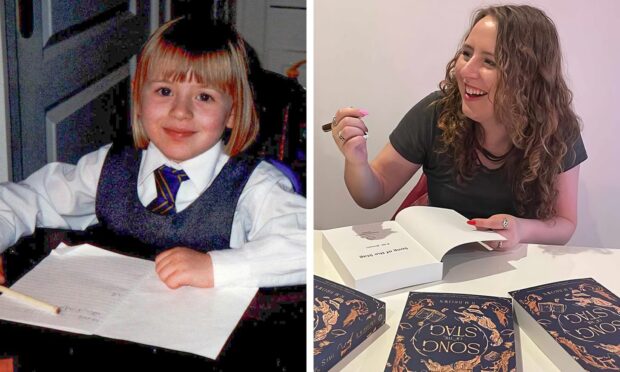To find out if you’re ready for retirement, it’s possible that financial planning comes to mind. The challenge is that most people’s thought process, when thinking of retirement and financial planning, focuses solely on money. It’s easy to lose sight of what’s it’s really all about: living the life you want to live.
-
Some Courier online content is funded by outside parties. The revenue from this helps to sustain our independent news gathering. You will always know if you are reading paid-for material as it will be clearly labelled as “Partnership” on the site and on social media channels,
This can take two different forms.
“Presented by”
This means the content has been paid for and produced by the named advertiser.
“In partnership with”
This means the content has been paid for and approved by the named advertiser but written and edited by our own commercial content team.
Retirement planning is not just about money, a perception that the financial planning world has been working hard to change.
Instead of focusing on how much cash you have in your savings account or how your investments are performing, you should focus on your goals and dreams and how they relate to the quality of life you want to have. This new chapter in your life is a chance to reset and consider what you want and need.
Once known, and with the help of a good lifestyle financial planner, you can begin to put in place your steps to turning these dreams into a reality.
Here are questions you can ask yourself now to know if you’re ready for retirement.
Retirement: a self-assessment
1. Are you psychologically ready for retirement?
Are you ready to give up work? People who have worked full time for years don’t often give much thought to what retirement may look like for them. Those who have no definite idea what to do in their retirement often face personal challenges, especially if they define themselves by the work that they do or have spent little time on leisure pursuits.
2. Is phased retirement a better option for you?
If you’re ready to retire but have no plan on what to do yet, maybe you should consider easing into it. Start by reducing your working hours from five to three days a week. Perhaps you can work part-time? This way, you can get used to the idea of more free time on your hands and you’ll be able to really think of where you would like to devote all of that time.
3. How do you picture your retirement?
What does retirement mean to you? Is it stopping work completely or changing what you do? At what age do you want to retire? How will your lifestyle change? Will you be travelling? Where? For how long? Do you want to start a new hobby or pursue that degree course you’ve always wanted? Or maybe you want to embark on a new business venture? This is the time to indulge yourself and do the things that will make you happy. It really is the time to have a life reset.
4. What would you need for the life you want in retirement?
Grab those pension statements and organise them. What do you have? Will it be enough?
You will likely have a combination of entitlement to State, company or private pensions. Establish what other sources of income you may have. These could include investment income, rental income or business earnings. Then, determine what you need to support your lifestyle when you stop working.
5. Is there someone you can turn to for help?
Ideally seek out a financial adviser you know and trust who can help you understand your starting point. It can be difficult knowing where to turn for advice so ask family or friends who they use; sometimes a personal recommendation will lead you to the right adviser.
Discuss with your adviser your hopes for the future. Ask them to work with you to create a personalised lifetime plan to help you establish if you’re saving enough for the lifestyle you want when you retire or if you have enough to retire and change direction now.
Susan Bennett, chartered financial planner and regional director at Advanta Wealth says: “Start early, ideally as soon as possible. The famous investor Warren Buffett has accredited compounding of returns as the secret to his investment success.
“I would also advise that you start to sense check if you are on track for a comfortable retirement around age 40. Repeat this exercise every five to ten years as a minimum. Often your goals can change. Family circumstances change and life can throw us some curveballs.
“In addition, people find they may have more disposable income in their late 40’s or 50’s as their children have grown up and moved out of your family home. Ask yourself how you can use this excess income in a productive manner.”
Susan’s ultimate advice? “Don’t be afraid; fear of the unknown can often lead to inaction. Working with an experienced lifetime financial planner can help you to explore your retirement journey and establish when you can implement the changes you desire.”
Advanta Wealth just opened an office in Dundee. Ask them if you’re ready for retirement with an initial free consultation. Visit Advanta Wealth’s website or call on 01382 787 101.
Risk Warning
Pension investment funds and the income from them may fluctuate and can fall as well as rise. Eventual retirement income will depend on the size and value of your pension pot, future interest rates and tax legislation. Tax treatment is dependent upon individual circumstances and may be subject to change in the future.











